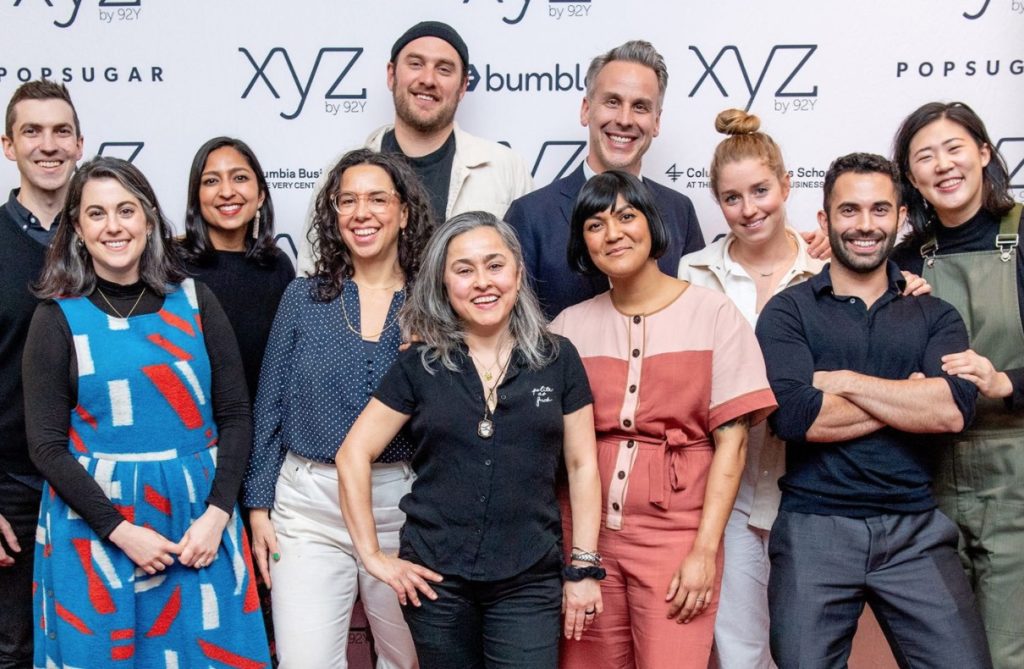 Source: NBC News
Source: NBC News
Every week we track the business, tech and investment trends in CPG, retail, restaurants, agriculture, cooking and health, so you don’t have to. Here are some of this week’s top headlines.
On Monday, a 2004 photo of Bon Appétit’s Editor in Chief Adam Rapoport and his wife, Simone Shubuck, posing in brown face surfaced on Twitter. Several members of its Bon Appétit’s staff took to social media to call for his resignation and for better compensation and treatment of people of color at the company.
After months of negotiations with Uber Eats, Grubhub has turned down the deal to combine its operations with Just Eat Takeaway in a $7.3 billion merger – creating a trans-Atlantic delivery giant at a time the industry is seeking scale.
Concerns of food shortages continue to loom as Covid-19 takes the lives of workers across 60 US plants. Those who have gone on strike demanding safety measures have died from the virus. As of June 8, at least 28.4k+ meatpacking, food processing and farm workers have tested positive for Covid-19 and at least 101 workers have died.
The COVID-19 pandemic has put more than 10 million independent restaurant workers at risk of losing their jobs for good. Across sectors, businesses are being forced to pivot their business models as consumers go on lockdown and change their buying habits. This round-up features many of the ways the pandemic is impacting all parts of the food industry.
In an effort to do our part and support the community we love so dearly, we have compiled a list of resources and organizations that are providing support to those in need. We are also offering free job postings to anyone who is looking to employ people impacted by the COVID-19 pandemic.
- Resources: We have compiled a database of resources for those in the food industry impacted by the pandemic here. Please add your own resources as well.
- Jobs: We need to band together to support everyone across the food system who has lost their job due to the pandemic. Use code “coronavirusfoodjobs” to post remote or remote-friendly food jobs on our job board for free.
We need your support as well. Producing our newsletter takes a lot of time and resources, and we need to change our business model to keep it going. To date, we’ve funded our work through our events, sponsorships and consulting, which are all on hold due to the pandemic. If you find our newsletter to be a valuable resource, we hope you will consider making a one time or monthly contribution, so we can keep the newsletter going and free for those who can not afford a subscription fee. Whether it’s $5 or $500 every bit helps and shows us that you value our work. Not able to contribute right now? You can help by sharing our newsletter with friends and colleagues.
Check out our weekly round-up of last week’s top food startup, tech and innovation news below or peruse the full newsletter here.
1. Condé Nast’s Bon Appetit Allegedly Pays Only White Editors for Videos, Image of EIC Adam Rapoport in Brown Face Surfaces – Variety
Adam Rapoport, editor-in-chief of Bon Appetit, came under fire Monday with calls for him to resign or be fired after allegations that the Condé Nast food title pays white editors — but not people of color — for video appearances. In addition, a photo of Rapoport in brown face was posted on social media.
2. Bon Appétit Editor Adam Rapoport Resigns – New York Times
The move comes hours after a photo of him resurfaced on social media, drawing condemnations from the staff for a stereotypical depiction of Puerto Ricans.
3. Bon Appétit’s Editor in Chief Just Resigned – but Staffers of Color Say There’s a ‘Toxic’ Culture of Microagressions and Exclusion That Runs Far Deeper Than One Man – Business Insider
We spoke with 14 former and current Bon Appétit staffers and contributors about their experiences at both the magazine and its beloved Test Kitchen.
4. Just Eat Takeaway Confirms It’s Gobbling Up Grubhub in a $7.3B Deal – TechCrunch
The Dutch food delivery company beat out Uber to buy Grubhub, whose chief executive will oversee operations in North America. The combined operation will have over 70m combined active customers globally.
5. More Food Shortages Loom with Outbreaks at 60 US Plants – Bloomberg
Yakima, Washington, a hub of agricultural activity, has the highest per capita rate on the West Coast. More than 1k workers got sick, and those who went on strike for safety demands died from the virus.
6. Coronavirus Outbreaks Climb at US Meatpacking Plants Despite Protections, Trump Order – USA Today
The number of coronavirus cases tied to meatpacking plants has topped 20.4k infections across 216 plants in 33 states. At least 74 people have died.
7. Mapping Covid-19 Outbreaks in the Food System – The Fern
As of June 8, at least 28.4k+ meatpacking, food processing and farm workers have tested positive for Covid-19 and at least 101 workers have died.
8. BLM Community Resources – Museum of Food & Drink
In solidarity with the Black Lives Matter movement, we have compiled a list of resources amplifying black chefs and food producers, black-owned businesses, and organizations helping the food insecure during protests and COVID-19.
9. In Apparent Rejection of Federal Court, EPA Allows Continued Dicamba Use – The Counter
A federal court ruling banned the controversial herbicide last week, but Trump’s EPA is pushing back. The administration announced that farmers will be able to continue to spray dicamba through July 31.
10. Louisville Barbecue Owner Killed in Police Shooting Fed a Food Desert – New York Times
David McAtee is remembered as a man who reached out to his black community through his cooking. He was shot amid a volley of bullets fired by two police officers and two National Guard members enforcing the city’s curfew.
11. Food Banks and Other Key Programs Have Received a Fraction of Allotted Coronavirus Money, Angering Some Lawmakers – The Washington Post
In some cases, agencies still have not released funds two months after passage of $2t Cares Act.
12. There’s Only So Much We Can Do’: Food Banks Plead for Help – Politico
In late April, more than 17% of mothers reported their children under the age of 12 were not getting enough to eat because the family couldn’t afford enough food – a more than 400% increase from when the government last measured hunger rates in 2018.
13. Black Chefs Have Overcome Countless Obstacles. This Might Be the Hardest Yet. – The Washington Post
Will black chefs, who rose the ranks to become inspirations to others, be able to survive the twin assault of a global pandemic and outrage over another police killing?
14. Eating at Black-Owned Restaurants Isn’t Going to Save Us – KQED
The harm doesn’t live in those dollars. It lives in the framing of temporary patronage as a viable solution to an enduring problem—or worse, as salvation. The harm is the capitalistic impulse that has distorted tragedy to resemble Black Restaurant Week.
15. Temasek Leads $46M Series B for Ascus Bio’s Microbe-Based Animal Feed Additives – AgFunder
The new capital will be used to help the company expand its customer sales and service teams, advance new products in the pipeline and refine its tech platform and IP foundation.
16. MycoTechnology Raises $39M in Series D to Expand Functional Ingredients Platform – Food Navigator
The funding was co-led by Greenleaf Foods, SPC, S2G Ventures and Evolution Partners with participation from Tyson Ventures, Kellogg’s eighteen94 Capital and others.
17. Starbucks to Close 400 Stores, Speed Expansion of Pickup Locations, Curbside and More – TechCrunch
The coffee chain will expedite the rollout of its new “Pickup” store concept, powered by mobile ordering, in response to the coronavirus pandemic. It will also expand access to curbside pickup, drive-thru and walk-up counters in less dense, suburban markets.
18. Instacart Claims More Than Half of Online Grocery Market – Grocery Dive
Instacart’s share of the online grocery market reached a high of 57% in April. The growth puts it ahead of Walmart, which saw its market share drop 25% in March.
19. Struggling Farmers Are Selling Midwest Hogs Ad Hoc and Online – Civil Eats
An under-the-radar market has sprung up to prevent euthanizing pigs and help support farmers. But communities on the receiving end have limited processing capacity and big concerns.
20. Meal Kit Industry Expected to Hit $20B by 2027 – Grocery Dive
The sector is seeing a revival from the COVID-19 pandemic and is also expected to get a boost from culinary-minded millennials.
21. Farmers Get Billions in Virus Aid, and Democrats Are Wary – New York Times
As the administration sends up to $16b in additional subsidies, critics are concerned that the funds could be used to ensure that the president maintains the backing of one of his key voting blocs.
Our newsletter is the absolute easiest way to stay on top of the emerging sector, so sign up for it today and never miss the latest food tech and innovation news and trends, Already signed up? Share the love with your friends and colleagues!





